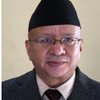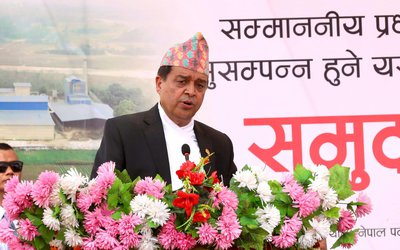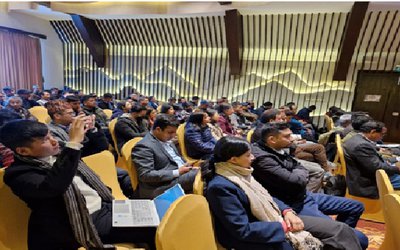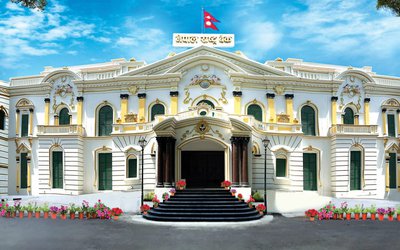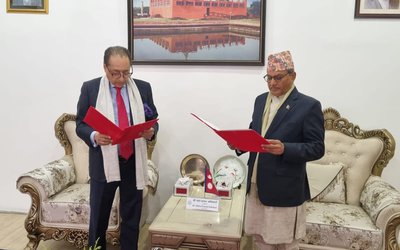What is the Private Sector?
The private sector the part of the economy that is run by individuals and companies for profit and is not state controlled. Therefore, it encompasses all for-profit businesses that are not owned or operated by the government. Companies and corporations that are government run are part of what is known as the public sector, while charities and other nonprofitorganizations are part of the voluntary sector.
Key
The private sector consists of all privately owner, for-profit businesses in the economy. The private sector tends to make up a larger share of the economy in free market, capitalist based societies. Private sector businesses can also collaborate with government run agencies in arrangements called public-private partnerships.
Understanding the Private Sector
The private sector is the segment of a national economy that is owned, controlled, and managed by private individuals or enterprises. The private sector has a goal of making money and employs more workers than the public sector. A private sector organization is created by forming a new enterprise or privatizing a public sector organization. A large private sector corporation may be privately or publicly traded. Businesses in the private sector drive down prices for goods and services while competing for consumers’ money; in theory, customers do not want to pay more for something when they can buy the same item elsewhere at a lower cost.
In most free economies, the private sector makes up a big portion of the economy, as opposed to nations that have more state control over their economies, which have a larger public sector. For example, the United States has a strong private sector because it has a free economy, while China, where the state controls many of its corporations, has a larger public sector.
Private and Public Sector Differences
The private sector employs workers through individual business owners, corporations or other non-government agencies. Jobs include those in manufacturing, financialservices professions, hospitality, or other non-government positions. Workers are paid with part of the company’s profits. Private sector workers tend to have more pay increases, more career choices, greater opportunities for promotions, less job security, and less comprehensive benefit plans than public sector workers. Working in a more competitive marketplace often means longer hours in a more demanding environment than working for the government.
The public sector employs workers through the federal, state or local government. Typical civil service jobs are in health care, teaching, emergency services, armed forces, and various regulatory and administrative agencies. Workers are paid through a portion of the government’s tax. Public sector workers tend to have more comprehensive benefit plans and more job security than private sector workers; once a probationary period concludes, many government positions become permanent appointments. Moving among public sector positions while retaining the same benefits, holiday entitlements, and sick pay is relatively easy while receiving pay increases and promotions is difficult. Working with a public agency provides a more stable work environment free of market pressures, unlike working in the private sector.
Politically Exposed Person (PEP)?
The definition of politically exposed person (PEP) is an individual with a high profile political role, or who has been entrusted with a prominent public function.
In Nepal recently, more than two hundred plus industrialists and businessmen from different strata of the society have joined the CPN-UML. Premier KP Sharma Oli called for “Prosperous Nepal: Happy Nepali “urging the industrialists to be active in fulfilling the aspirations, he invited the representatives of most of the business organizations and eminent businessmen to the Prime Minister's residence in Baluwatar and called for cooperation in this direction. “We are developing history and modernity." "Even though Nepal is a country that cannot and should not be poor, it has to be poor because of the past rulers and the government is working to end that situation," he said."
As such, participating in politics in Nepal is a matter of prestige not only for businessmen but also for any businessman. There are many businessmen involved in politics here. Nepal's only billionaire businessman. And even the former president of the federation went to the parliament including the Constituent Assembly. However, before we get into that, we need to understand whether a businessman should enter politics or not.
Entrepreneurs and the business person are already struggling with heavy workloads to manage their issues. Moreover, they spend a considerable amount of money on welfare if they wish. On the other hand, if businessmen end their careers and get involved in politics, and spend their time in politics, they may become game changers. There are many examples of business-transformed politicians in Nepal. It is very difficult to say that a businessman plays a good political role.
It is agreed that politics is different from business. If a person comes to politics from a profession that is ready to face repeated attacks of anxiety because the field of politics is a mind game, you don't trust anyone, and you don't believe that any situation is stable. If you want to go upstairs, you are likely to lose or lose a lot of things, including your money and professionalism. Yes, it is possible, get in touch with politicians and sees and seize business opportunities... because if the ruling party is gone you cannot do your regular politics effectively while the opposition party is coming to power.
In Nepal, even today there are many honest and hard-working politicians and they are working hard in the current government. And there is a lot of transparency. Politicians are still more powerful and can't predict the future right now. Based on their experience as a former political financier in the 1980s, some people say with confidence that successful businessmen don't make good politicians.
Those who do good business are good at business and good politicians are good at politics, and they can never replace one another. The main reason for this is that the two (business minds versus political perspectives) are different subjects and require different intellectual perspectives. In business, entrepreneurs have space for good deals, shops and even pay for it.
Entrepreneurs as a whole are less interested in theoretical matters and flow with the 'reality in the country. Politicians consider it foolish to ignore 'principles' and party lines, and it is not politically ethical to do so.
Politicians can be “professional” in many ways, but certainly not operating as an entrepreneur in and out. Entrepreneurs are accustomed to achieving goal-oriented, concrete goals, not stopping to write laws Entrepreneurs are accustomed to delegating their rights. The hope is that they will turn to the 'right kind of people. The problem is that they are superficially targeted for engaging in this relationship and are therefore candidates to choose as advisors if serving as academics, or ‘certified high profile individual' is one thing.
Entrepreneurs, big business people can be accustomed to disrupting a certain system. Their response may simply be to "reduce taxes." But we also have to consider what happens to the social inevitability. If that happens, it will be a 'moral suspension' and they will soon be discredited, so there is no shortage of people who say it would be appropriate for them to enter politics.
Goals in business are measured in terms of certainty, markets are relative institutions, any CEO who succeeds "can't stop the scent of roses", or studies philosophy, psychology. They may have one or two experiences in economics, accounting or finance, but it is almost impossible for them to have a 'world view'. Probably they are experts who rely on expertise in terms of 'expertise'. This wonderful spot" in politics is a "blind spot".
Businessmen will sell the idea of making them great politicians because they do what they sell. The business of politicians is to protect the people, to serve the welfare of the country, and to pass on the country/state/province/city/local level to the next generation, hopefully, it can be better than they imagined. In the other hand, when politicians turn government into a business, they stop seeking the good of the people and the good of themselves, those around them and their debtors that is, lobbyists, party leaders, and campaign contributors. Some of them don't even care what they do legally. They make laws and vote only to make it legal.
If a person goes into politics for the service of the people, for the benefit of his / her constituency, and leaves the government better than he or she finds ... it doesn't matter if the person was a businessman or not. Most politicians today enter it for money, and laws have changed to make politicians attractive.
Big businessmen make big politicians in the world value picture and there are many examples now in the government as evidence. Just because business and government goals are not the same. If a businessman is found guilty of professional conduct (e.g. chartered accountant) or commits a crime, the Institute of Chartered Accountants has a degree in which he or she has worked hard. But politicians, even with a strict criminal office, might not have to never stop running for office.
A businessman (especially if a small person evades a small tax is fined and prosecuted) but even if a politician commits a big scam he might not be never subject to many difficulties. Although they have been prosecuted, most of them do not pursue their case and do not know whether they are being held in the same conditions as other ordinary criminals in prison.
To sum up, Nepal is currently at a historic juncture in its history. May the entry of a businessmanenmasseinto politics bring good news in the days aheadlet us hope for the better!,
- Nepal-India Trade, Transit And Unauthorized Trade: Some Considerations
- Jan 16, 2025
- PM Oli’s Forthcoming Visit To China: Will The Achievement Be Complete?
- Nov 29, 2024
- Obituary To Dr. Mohan Man Sainju!
- Nov 02, 2024
- Donations To Political Parties: Some Reflections
- Oct 24, 2024
- From the “Tito Satya” of the small screen to the“ChakkaPanja-5 of big screen – Is it "Must see" or Bhaigo" Pass" to watch?-
- Oct 15, 2024
